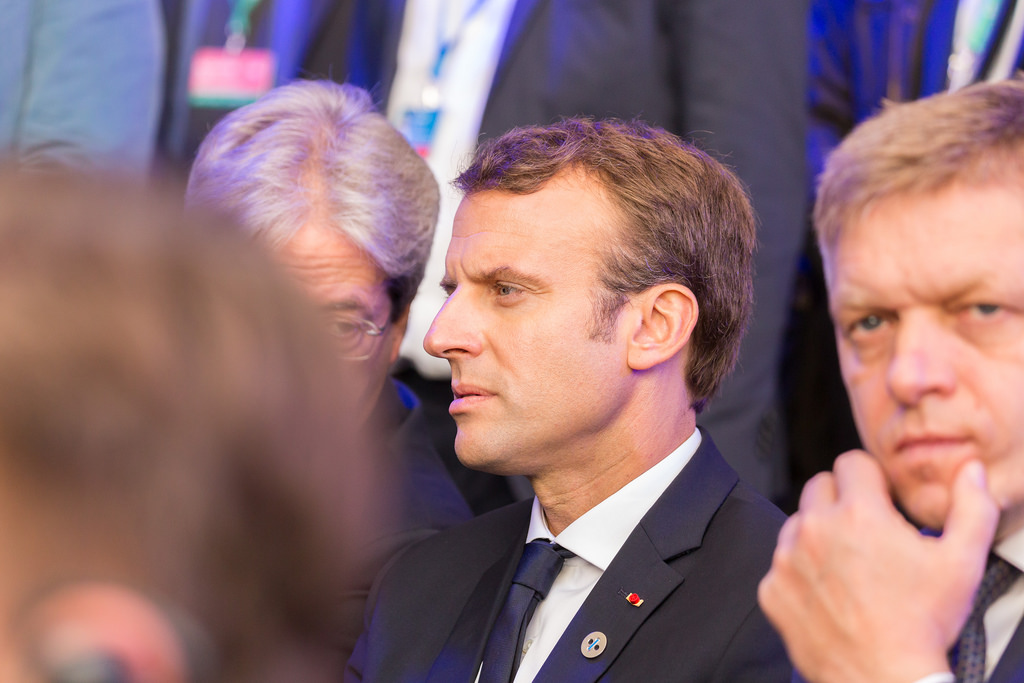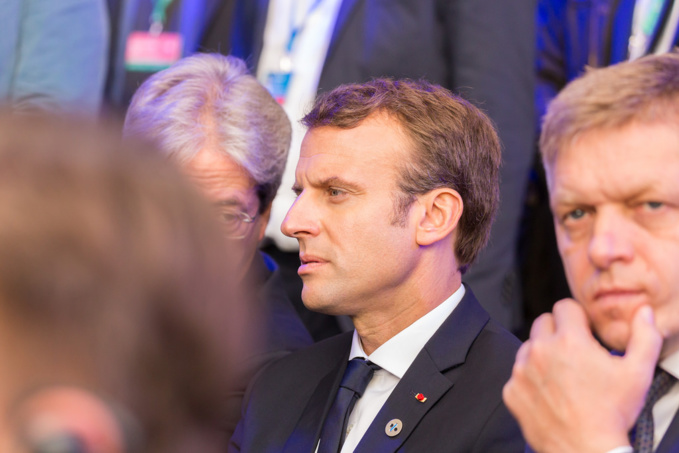The main criterion for victory is the scale of changes for the better within the country or its positive impact on the world in the last 12 months. Unfortunately, the ratings have had some errors in the past. In 2015, the magazine called awarded Myanmar for replacing the "predatory dictatorship" to "what reminds democracy." The editorial board acknowledged the attitude of the Myanmar government to the Rohingya people as disgusting, but journalists were not able to predict the further deterioration of the situation. This year, after 600 thousand Rohingya fled from their native villages due to fear of violence and death, the idea arose to call neighboring Bangladesh the country of the year for receiving so many refugees. This country also showed good economic growth and managed to reduce poverty. However, violation of civil liberties and the Islamists intimidating people prevented the country from winning.
Another candidate was Argentina, where President Mauricio Macri is conducting painful reforms to restore fiscal health after the long-term wasteful populism of the Kirchner family. In October, Macri’s party received broad support from voters in the midterm elections, which indicates that the Argentines no longer believe in false statistics and promises of free money. Despite street protests in December, it was a progress.
As a result, South Korea and France remained in the short list. South Korea had an extraordinary year, but, despite the missile threats of its northern neighbor, the country lived quietly and with dignity.
This is not new: North Korea has been promising to destroy the South for several decades, but the tension has worsened in recent months amid tightening rhetoric of President Donald Trump and Kim Jong-un. South Korea had to deal with the internal crisis. Mass demonstrations and corruption investigations led to the impeachment of President Park Geun-hye, who is now awaiting trial in a prison cell. Her receiver Moon Jae-in faced a Chinese boycott in connection with the decision to deploy a missile defense system on the country’s territory (Beijing believes that the new radar can follow not only North Korea, but also China). Moon politely refused the request of Trump to review the bilateral trade agreement. The Seoul court ruled to arrest Head of the country's largest financial and industrial conglomerate Samsung. In short, South Korea has achieved significant success in purifying domestic policy, despite the constant threat of a nuclear apocalypse.
In other years, this would be enough. But in 2017, France turned everything upside down. Emmanuel Macron, a young ex-banker who did not have the support of a traditional party, unexpectedly won in the presidential election. Then, "La République En Marche!", Macron’s party, won the majority of seats in the parliament. It was not just a political earthquake. There was a hope for those who believe that the old section between the left and right is less important than the confrontation between openness and closeness.
During the campaign, Macron agitated for France, which, in his view, would be open to the people, goods and ideas from abroad, as well as social changes at home.
Within six months, he and his party conducted a series of important reforms, including adoption of an anti-corruption law and relaxation of strict French labor laws.
Critics scoff at the grandiose goals of Macron, calling him a visionary. From their point of view, his reforms have gone too far. Perhaps they forgot what France was before his arrival. Macron has shaken the "ancient regime" and defeated the ultra-nationalist party of Marine Le Pen, whose victory would lead to the collapse of the European Union.
The struggle between the principles of open and closed society today is perhaps the most important political competition in the world. France declared war on the supporters of disunity and won over them. That's why France became a country of the year in 2017.
source: economist.com
Another candidate was Argentina, where President Mauricio Macri is conducting painful reforms to restore fiscal health after the long-term wasteful populism of the Kirchner family. In October, Macri’s party received broad support from voters in the midterm elections, which indicates that the Argentines no longer believe in false statistics and promises of free money. Despite street protests in December, it was a progress.
As a result, South Korea and France remained in the short list. South Korea had an extraordinary year, but, despite the missile threats of its northern neighbor, the country lived quietly and with dignity.
This is not new: North Korea has been promising to destroy the South for several decades, but the tension has worsened in recent months amid tightening rhetoric of President Donald Trump and Kim Jong-un. South Korea had to deal with the internal crisis. Mass demonstrations and corruption investigations led to the impeachment of President Park Geun-hye, who is now awaiting trial in a prison cell. Her receiver Moon Jae-in faced a Chinese boycott in connection with the decision to deploy a missile defense system on the country’s territory (Beijing believes that the new radar can follow not only North Korea, but also China). Moon politely refused the request of Trump to review the bilateral trade agreement. The Seoul court ruled to arrest Head of the country's largest financial and industrial conglomerate Samsung. In short, South Korea has achieved significant success in purifying domestic policy, despite the constant threat of a nuclear apocalypse.
In other years, this would be enough. But in 2017, France turned everything upside down. Emmanuel Macron, a young ex-banker who did not have the support of a traditional party, unexpectedly won in the presidential election. Then, "La République En Marche!", Macron’s party, won the majority of seats in the parliament. It was not just a political earthquake. There was a hope for those who believe that the old section between the left and right is less important than the confrontation between openness and closeness.
During the campaign, Macron agitated for France, which, in his view, would be open to the people, goods and ideas from abroad, as well as social changes at home.
Within six months, he and his party conducted a series of important reforms, including adoption of an anti-corruption law and relaxation of strict French labor laws.
Critics scoff at the grandiose goals of Macron, calling him a visionary. From their point of view, his reforms have gone too far. Perhaps they forgot what France was before his arrival. Macron has shaken the "ancient regime" and defeated the ultra-nationalist party of Marine Le Pen, whose victory would lead to the collapse of the European Union.
The struggle between the principles of open and closed society today is perhaps the most important political competition in the world. France declared war on the supporters of disunity and won over them. That's why France became a country of the year in 2017.
source: economist.com



















